Shingles
Understanding Shingles: Causes, Symptoms, and Treatment
Shingles is a viral infection that manifests as a very painful red rash accompanied by small blisters. This condition is typically localized to a specific area of the body, often affecting just one side, and is frequently associated with numbness or a tingling sensation. While shingles is not directly contagious, it is important to note that the varicella-zoster virus, which causes shingles, can be spread to individuals who have not had chickenpox or the chickenpox vaccine, potentially leading to chickenpox in those individuals.
At Cumberland Skin, our experienced dermatologists are here to support you in managing shingles. Whether you're dealing with the discomfort of an active outbreak or seeking guidance on prevention, our trusted providers are dedicated to helping you navigate this condition with expert care and compassion.
If you suspect you have shingles or want to learn more about how to manage and prevent it, schedule an appointment with one of our skilled providers at Cumberland Skin. Start your journey to healthier skin with the confidence that comes from expert care.
Examples of Shingles
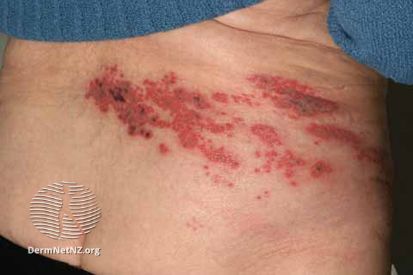
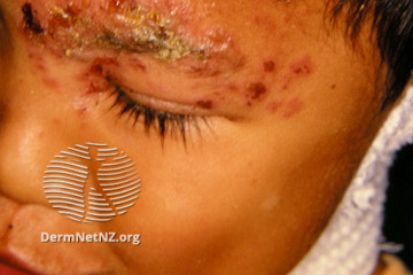
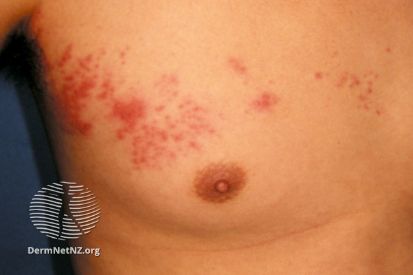
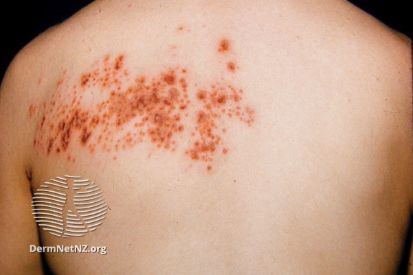
What are the Symptoms of Shingles?
- Headaches, fever, and/or chills.
- Fatigue.
- A line of fluid-filled blisters.
- Severe itching, burning, pain, or discomfort.
- Numbness and/or a tingling sensation.
What Causes Shingles?
- Shingles are caused by the reactivation of the varicella-zoster virus, the same virus responsible for giving us chickenpox.
- When the immune system weakens with age, stress, or other factors, the virus can resurface, leading to shingles.
- The reactivated virus travels along nerves, causing pain and a distinctive rash.
Shingles Prevention
Shingles FAQs
Shingles is a viral infection caused by the varicella-zoster virus, the same virus responsible for chickenpox. After having chickenpox, the virus can reawaken later in life, leading to shingles.
Early signs may include pain, tingling, or a burning sensation in a specific area of the skin, followed by the development of a rash with fluid-filled blisters. It often appears on one side of the body.
Dermatologists play a key role in diagnosing shingles by examining the characteristic rash. They differentiate it from other skin conditions based on the distribution, appearance, and accompanying symptoms.
In some cases, shingles can cause scarring, especially if blisters are scratched or not properly cared for. Dermatologists can provide guidance on wound care to minimize scarring.
Sun exposure can trigger shingles outbreaks. It's advisable to protect the affected skin from direct sunlight during an outbreak, and dermatologists may recommend suitable sun protection measures.
Treatments for Shingles
- Prescription antiviral drugs.
- Numbing creams or sprays.
- Medications that can help with pain.
Schedule with one of our certified skin experts today!
Related Blog Posts
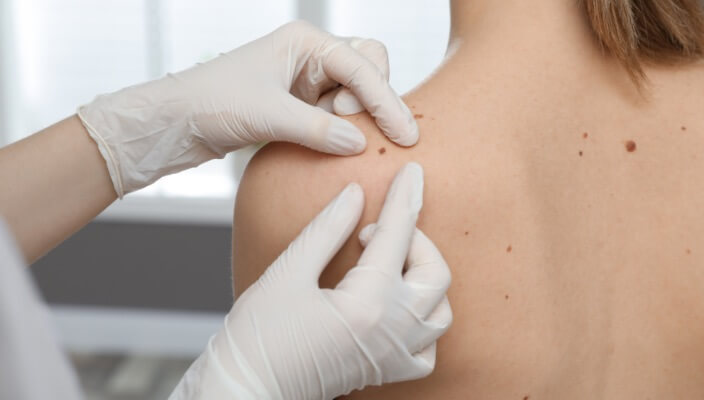
- General Dermatology
- Skin Exams
Preparing for your first dermatology appointment is important because it ensures everything goes as smoothly as possible and that your doctor is up-to-date on the status of your overall health and wellbeing. Here are our expert tips.
Read More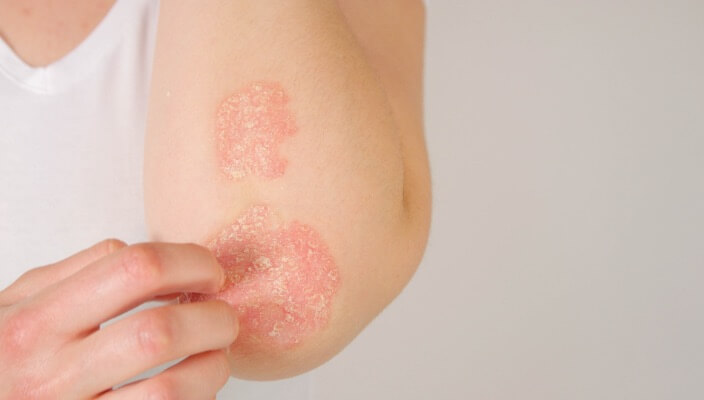
- General Dermatology
- Chronic Skin Conditions
Learn the differences between dry skin, eczema, and psoriasis, their distinct characteristics, and potential triggers. Gain valuable insights into identifying symptoms and seeking appropriate treatment to effectively managing these common skin conditions.
Read More
- Skin Care
- Cosmetic Treatments
Unlock the secrets to achieving radiant, glowing skin. Explore expert tips and skincare routines tailored to nourish and revitalize your complexion, empowering you to embrace a luminous and youthful appearance.
Read MoreFeatured Products
Check your local office for current stock!
Check your local office for current stock!


